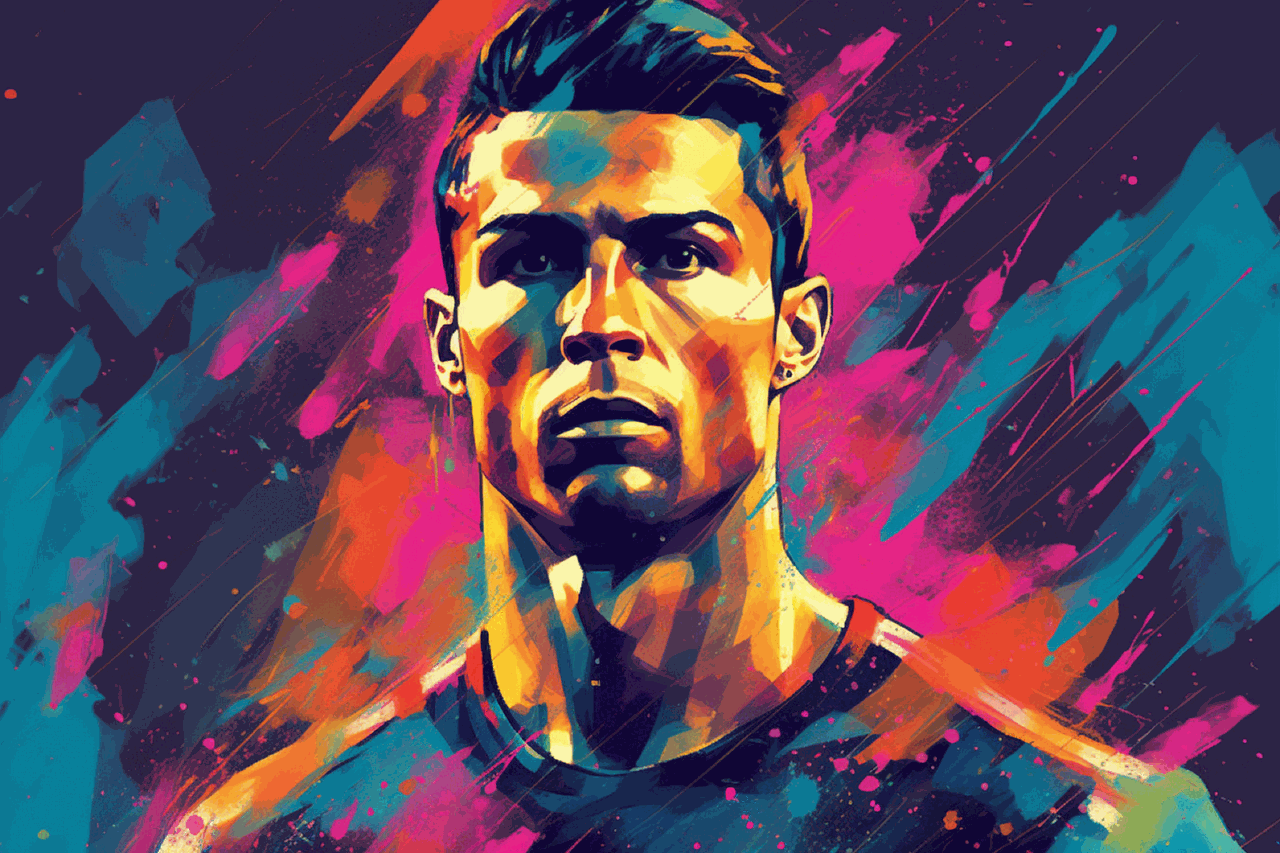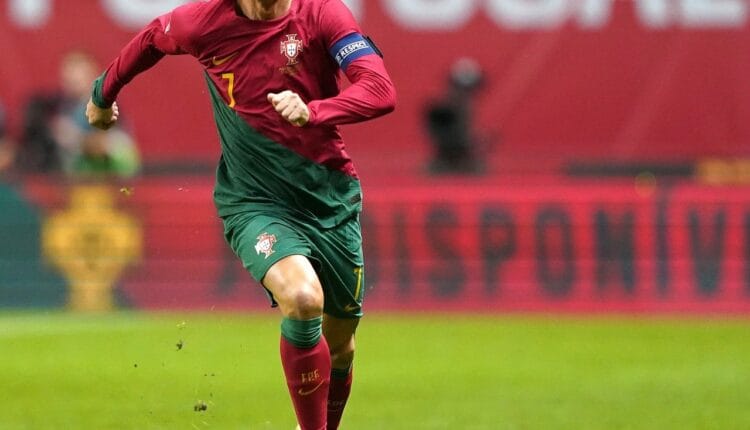Who is Better Than Ronaldo: A Comprehensive Analysis
Cristiano Ronaldo, a name synonymous with football excellence, has carved an indelible mark in the annals of the sport. From his early days as a prodigious talent in Madeira, Portugal, to becoming one of the most celebrated footballers globally, Ronaldo’s career trajectory is nothing short of extraordinary. He began his professional journey with Sporting CP before catching the eye of global giants Manchester United. His tenure at Manchester United was marked by significant growth and numerous accolades, including three Premier League titles and a Champions League victory in 2008.
Ronaldo’s move to Real Madrid in 2009 for a then-world record transfer fee of €94 million marked the beginning of a new era. At Real Madrid, Ronaldo’s contributions were monumental. He scored an astonishing 450 goals in 438 appearances, helping the club secure four Champions League titles, two La Liga titles, and numerous other domestic and international trophies. His time at Real Madrid also saw him clinch the Ballon d’Or five times, a testament to his individual brilliance and consistent high-level performance.
In 2018, Ronaldo took on a new challenge by joining Juventus, where he continued to demonstrate his prowess on the field. He played a crucial role in securing multiple Serie A titles for the club, further solidifying his reputation as a versatile and impactful player. His international career with the Portuguese National Team is equally impressive, highlighted by victories in the 2016 UEFA European Championship and the 2019 UEFA Nations League.
Throughout his career, Cristiano Ronaldo has been a beacon of excellence, known for his extraordinary goal-scoring ability, athleticism, and relentless work ethic. His contributions have transcended individual accolades, significantly impacting every team he has been a part of. Ronaldo’s legacy is a testament to his dedication, skill, and unwavering commitment to the sport of football.
Comparative Analysis: Ronaldo vs. Lionel Messi

The debate over who reigns supreme between Cristiano Ronaldo and Lionel Messi has captivated football enthusiasts for over a decade. These two icons have redefined modern football with their exceptional skills and achievements. Ronaldo, known for his remarkable goal-scoring ability, physical prowess, and versatility on the field, contrasts with Messi’s extraordinary dribbling, vision, and playmaking talents.
When examining their statistics, Ronaldo’s goal-scoring record is nothing short of phenomenal. As of 2023, he has accumulated over 800 career goals, a testament to his consistency and lethal finishing. Messi, while slightly trailing in total goals, compensates with his impressive assist record, showcasing his ability to create opportunities for his teammates. Messi’s career assist tally is among the highest in football history, underlining his role as both a scorer and a creator.
Dribbling skills constitute another significant aspect of this comparison. Messi’s close control and ability to navigate through tight defenses are often described as magical. His low center of gravity and quick acceleration make him a constant threat in one-on-one situations. Ronaldo, on the other hand, utilizes his speed, strength, and technical skills to outmaneuver opponents, often executing breathtaking runs from the wings.
Versatility is a hallmark of both players, although in different contexts. Ronaldo’s adaptability across various leagues—Premier League, La Liga, Serie A—demonstrates his ability to succeed in different football environments. Messi’s entire career at Barcelona, until his 2021 move to Paris Saint-Germain, highlights his loyalty and consistent performance in a single system.
Their head-to-head encounters are a treasure trove of thrilling football. Classic El Clásico matches between Real Madrid and Barcelona showcased the best of Ronaldo and Messi, often deciding the outcome of crucial fixtures. Football experts, coaches, and former players frequently weigh in on this rivalry. Sir Alex Ferguson, Ronaldo’s former manager, praised his work ethic and determination, while Pep Guardiola, who coached Messi at Barcelona, lauded Messi’s football intelligence and innate talent.
In conclusion, the Ronaldo vs. Messi debate is a matter of personal preference shaped by one’s appreciation for their distinct styles and contributions to football. Both players have left an indelible mark on the sport, and their legacies will endure long after they hang up their boots.
Emerging Talents and Future Contenders
The football landscape is ever-evolving, with emerging talents frequently stepping into the spotlight, challenging the status quo and aiming to etch their names in the annals of history. Among these rising stars, Kylian Mbappé, Erling Haaland, and Neymar have consistently been highlighted as potential successors to Ronaldo’s legacy.
Kylian Mbappé, the French prodigy, has already made a significant impact on the global stage. Bursting onto the scene with AS Monaco, his agility, blistering pace, and clinical finishing quickly caught the eye. Since his move to Paris Saint-Germain (PSG), Mbappé has continued to impress, contributing to multiple Ligue 1 titles and a memorable World Cup win in 2018. His playing style, characterized by electrifying speed and sharp dribbling, draws comparisons to a young Ronaldo. Statistically, Mbappé’s goal-scoring record in his early career is on par with Ronaldo’s initial years, suggesting a promising trajectory.
Norwegian sensation Erling Haaland has also emerged as a formidable contender. Known for his physicality, aerial prowess, and lethal finishing, Haaland’s rise has been nothing short of meteoric. His tenure at Borussia Dortmund has been marked by an impressive goal tally, earning him accolades and interest from top European clubs. At such a young age, Haaland’s ability to consistently find the back of the net mirrors the early career exploits of Ronaldo, positioning him as a significant threat to Ronaldo’s goal-scoring records.
Neymar, the Brazilian maestro, has long been touted as a natural successor to Ronaldo. With a flair for the dramatic, unparalleled dribbling skills, and an eye for goal, Neymar’s contributions to both Barcelona and PSG have been instrumental. Although injuries have occasionally hampered his progress, his technical brilliance and creative playmaking continue to set him apart. Neymar’s career statistics, when juxtaposed with Ronaldo’s early years, reveal a player with the potential to rival the Portuguese legend’s achievements.
Sports analysts and scouts often debate the future prospects of these emerging talents. While Mbappé and Haaland are seen as the new generation’s goal-scoring machines, Neymar’s artistry and experience offer a different dimension. Experts believe that if these players maintain their current form and continue to evolve, they could indeed challenge, if not surpass, Ronaldo’s illustrious records.
The Subjectivity of Greatness in Football
Determining the ‘greatest’ footballer is a task rife with subjectivity. While statistics provide a quantifiable measure of a player’s performance, they do not capture the full essence of what makes a footballer truly great. Leadership qualities, sportsmanship, and the ability to inspire both teammates and fans are intangible attributes that often elevate a player beyond mere numbers.
In discussing greatness, one must consider the varying contexts of different eras. Football has evolved significantly over the decades, with changes in playing styles, tactics, and even the physical demands of the sport. Comparing players from different periods is inherently challenging, as each era presents its unique set of circumstances and pressures.
Philosophical differences in football also play a crucial role in shaping opinions. Some fans and analysts prioritize technical skill and creativity, while others may value physical prowess and goal-scoring ability. Additionally, the impact a player has off the field—through philanthropy, community involvement, and personal conduct—can significantly influence perceptions of their greatness.
Cristiano Ronaldo is a prime example of a player whose influence transcends mere statistics. His records and accolades are numerous, but it is his relentless work ethic, leadership, and resilience that have cemented his legacy. Ronaldo’s impact extends beyond the pitch; he is a global icon whose influence on future generations of footballers is undeniable.
While it is inevitable that future players may surpass Ronaldo’s records, his contributions to the sport and his legacy will remain unparalleled. The debate over who is the greatest will continue, fueled by personal preferences and differing criteria for what constitutes greatness in football.
We invite readers to share their views and join the discussion. Who do you consider the greatest footballer, and what qualities do you believe are most important in defining football greatness?
